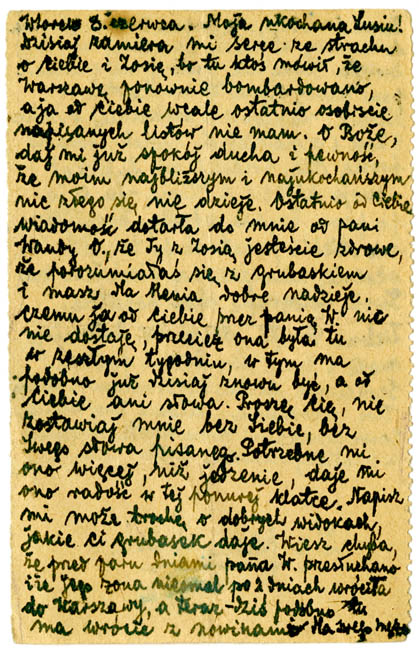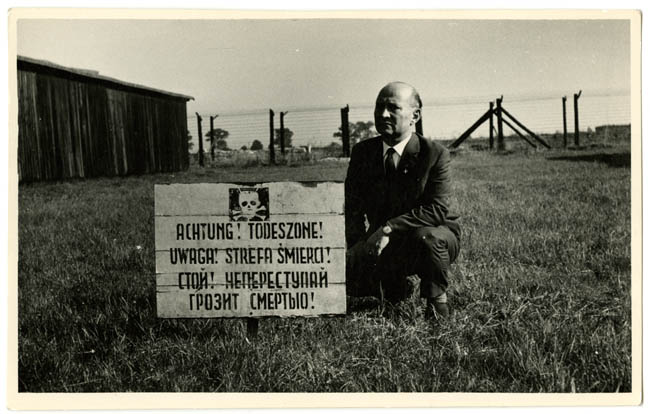On July 23, 1944, the Majdanek concentration camp was liberated by Soviet forces. Majdanek, located on the outskirts of Lublin, Poland was the first major concentration camp to be liberated. At the time of liberation, less than 500 prisoners were left in the camp.
Majdanek was constructed in October, 1941 and began as a concentration camp for political prisoners, specifically Soviet POWs. The first transport of Jewish prisoners at Majdanek arrived in December, 1941. By October, 1942, mass murder by poison gas was implemented in Majdanek in conjunction with the “Final Solution.” The use of gas chambers in the camp would continue until the end of 1943.
In the spring of 1944, the SS evacuated the majority of the prisoners at Majdanek to other concentration camps further west; Dr. Henryk Halpern-Wieliczanski was one of those prisoners. While he was not liberated from Majdanek, his Holocaust experience and story would be deeply influenced by the camp.

Henryk was born in Lodz, Poland in 1905 and married Teodozja Zwolinska in 1939. To protect himself and his wife, Henryk stopped using the Jewish part of his last name ‘Halpern’, and instead started going by ‘Wieliczanski’.
Henryk and Teodozja were both highly involved in the Polish underground resistance and even used their apartment in Warsaw as a distribution center for the underground press. Henryk was arrested by the Gestapo after being denounced for his underground activities and his illegal medical practice. He was subsequently deported to Majdanek in January, 1943 after spending a brief stint in the Pawiak prison. For unknown reasons, Teodozja was spared any form of arrest or imprisonment for her involvement.
Henryk would spend the next 16 months imprisoned at Majdanek. While there, he was forced to work as a prisoner physician in the typhus barracks, while also treating Nazi officers and soldiers for various diseases. Using his Polish surname, Henryk was able to pass as a non-Jew and therefore was imprisoned in the non-Jewish Polish portion of the camp. This detail spared him from being included in the mass murder of Jewish prisoners at Majdanek that occurred at the end of 1943.
Henryk survived Majdanek and was transported to Auschwitz in April, 1944. He was moved again when he was transported to Flossenburg labor camp in October of that same year. In April, 1945 he was on a railcar being transported to Dachau when he escaped with a handful of other inmates and started a partisan group fighting the SS and Nazi troops in Czechoslovakia.

After four long months, Henryk was able to make his way back to Lodz and was reconnected with Teodozja. The secret letters he wrote to her while imprisoned at Majdanek kept their hope alive that one day they would be able to reunite and plan for a future together as a family.

In remembrance of the anniversary of the liberation of Majdanek, Henryk’s valiant story of resistance and survival comes to a close back where the story began. In the 1950s, Henryk, along with a group of other former Majdanek inmates, revisited the camp where they were once imprisoned.

What makes a person willing and able to revisit that kind of pain? While honoring and remembering the past, it is more important than ever to understand that everyone’s experience was different and that the healing process never looks the same.